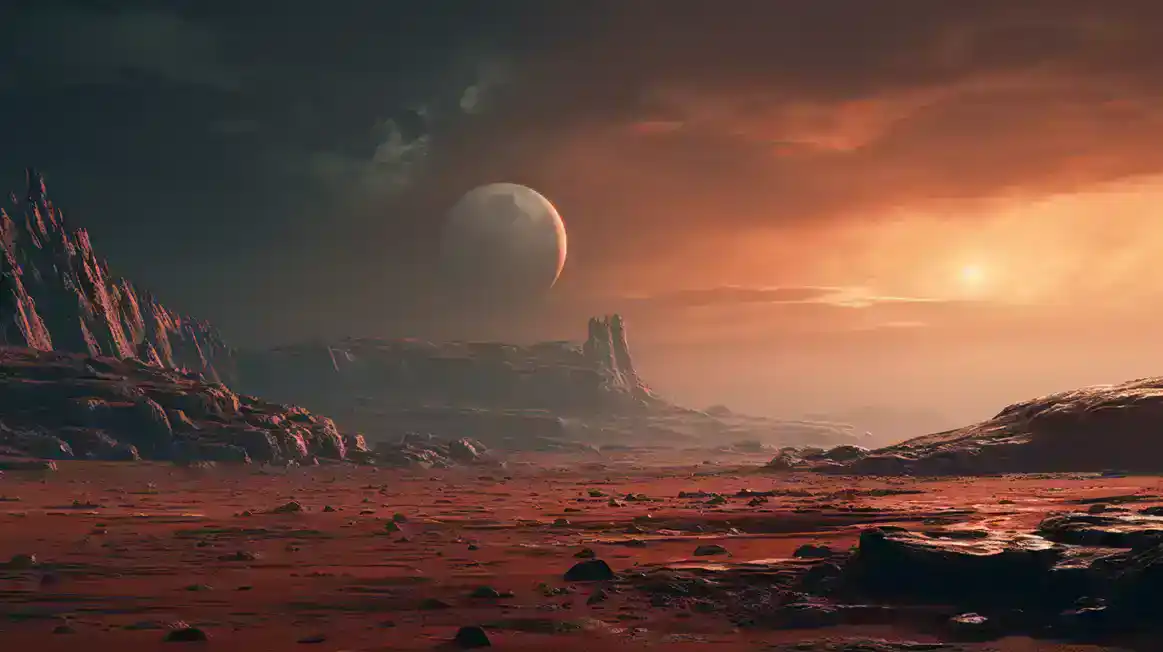Table of Contents
Oxygen is essential for life — and for space travel. Astronauts going to Mars will need oxygen to breathe and to fuel their rockets. However, bringing oxygen from Earth is both expensive and impractical. That’s why scientists are looking for ways to make oxygen from the resources available on the Red Planet.
Making Oxygen from Martian Water Ice
One of the most promising sources of oxygen on Mars is water ice, which is abundant in some regions. Because water is made up of hydrogen and oxygen, oxygen can be extracted by breaking down water molecules. However, this process requires special substances called catalysts, which can speed up the chemical reactions.
AI Chemist Synthesizes Water-Splitting Catalysts from Martian Rocks
In a groundbreaking study, researchers used an AI chemist to create some of these catalysts from Martian materials. The AI chemist was a robot that could collect, scan, and synthesize samples from different types of meteorites that originated from Mars. These rocks contained six metallic elements capable of forming millions of different molecules.
The robot tested 243 of these molecules in six weeks, without any human help. It found the best one that could split water at -37°C, a temperature similar to that of Mars. This catalyst was more efficient and stable than any other known catalyst for water splitting.
Dreaming of Interstellar Exploration with AI

The co-senior author of the study, Jun Jiang, a scientist at the University of Science and Technology of China in Hefei, said that he had dreamed of interstellar exploration since he was a boy. He told that he felt his dream was coming true when he saw that the robot could produce oxygen from Martian rocks. He even imagined living on Mars himself someday.
The researchers estimated that a human scientist would have taken about 2,000 years to find the best catalyst using traditional methods. They said that this showed the potential of AI in science, but also stressed that AI needed human guidance. The robot was smart only because it was taught to do something.
The researchers will now test the AI chemist under different Martian conditions, such as the atmosphere, air pressure, humidity, and gravity. They published their findings online on Monday (Nov. 13) in the journal Nature Synthesis.
What are some other applications of AI in science?
AI is a powerful tool that can help scientists in various fields and domains. Some other applications of AI in science are:
- Synthesizing information faster: AI can analyze large and complex data sets, find patterns and connections, and generate hypotheses that humans might miss. This can help scientists understand and solve challenging problems, such as the origin of life, the nature of chaos, or the interaction between genes and the environment.
- Accelerating drug development: AI can design and test new drugs in silico, using computer simulations and models, instead of relying on costly and time-consuming experiments. This can speed up the discovery and validation of new treatments for diseases, such as cancer, COVID-19, or Alzheimer’s.
- Being anywhere at any time: AI can enable remote and virtual collaboration among scientists, as well as access to data and resources from different locations. AI, for example, can assist scientists in exploring and monitoring extreme environments such as the deep sea, polar regions, and outer space.
- Enhancing creativity and innovation: AI can inspire and assist scientists to generate novel and original ideas, by providing suggestions, feedback, and alternatives. For example, AI can help scientists create new art forms, musical compositions, or literary works.
AI is transforming every aspect of science, and it has the potential to improve the efficiency, effectiveness, and excitement of scientific research. However, AI also poses some challenges and risks, such as ethical, social, and legal implications, that need to be addressed by the scientific community and society at large.